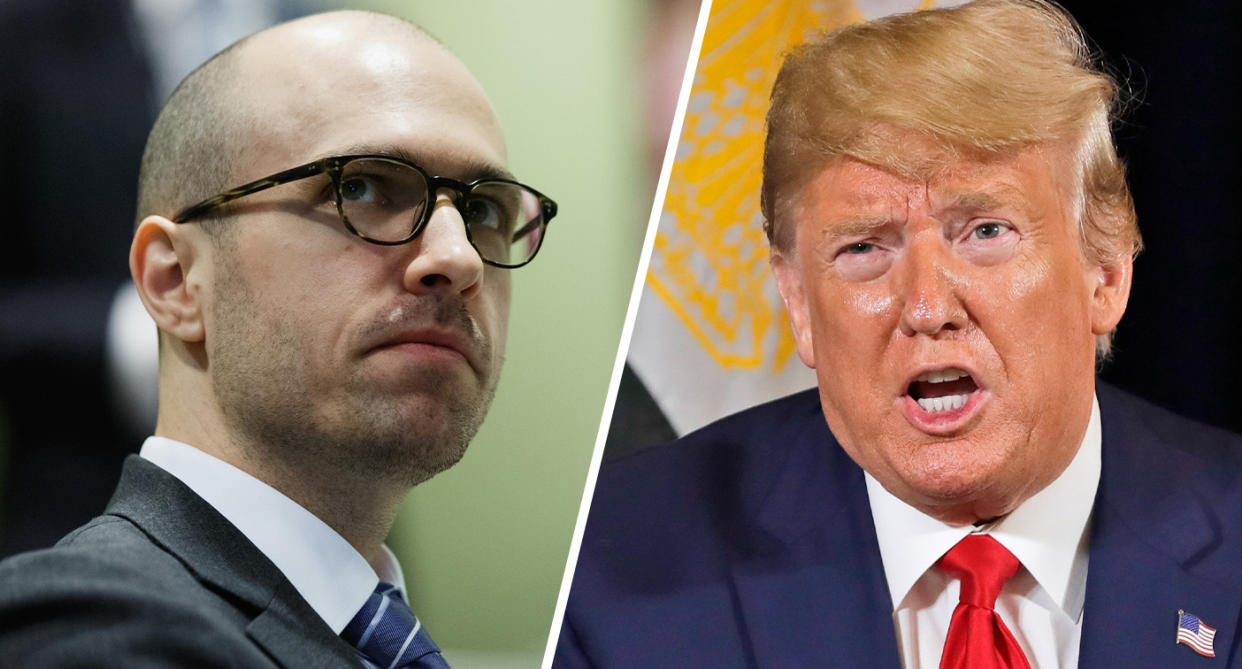Times publisher says administration fails to stand behind U.S. journalists

The publisher of the New York Times on Monday accused the Trump administration of standing by while a Times journalist faced arrest by the government of Egypt for his reporting.
In an op-ed titled “The Growing Threat to Journalism Around the World,” A.G. Sulzberger wrote that two years ago the paper was contacted by the U.S. government about the imminent arrest of a reporter based in Egypt named Declan Walsh. Sulzberger said that over the years the Times had received "countless" warnings from American diplomats, military leaders and national security officials about threats to its journalists. But this alert was different, because it was sent by private channels rather than as an official communication from the administration. Walsh said the blowback came from an August 2017 story about the death of an Italian student in Egypt, which remains a “sensitive issue.”
“But this particular call took a surprising and distressing turn,” wrote Sulzberger, who had discussed the events earlier Monday during a speech at Brown University. “We learned the official was passing along this warning without the knowledge or permission of the Trump administration. Rather than trying to stop the Egyptian government or assist the reporter, the official believed, the Trump administration intended to sit on the information and let the arrest be carried out. The official feared being punished for even alerting us to the danger.”
The paper turned to officials from Walsh’s native country of Ireland, who arranged for him to leave the country and escorted him to the airport before he could be arrested. Walsh returned to the country a few weeks later and still serves as the paper’s Cairo bureau chief.
Sulzberger said that 18 months later, a Times reporter named David Kilpatrick was “detained and deported in apparent retaliation for exposing information that was embarrassing to the Egyptian government.”
“When we protested the move, a senior official at the United States Embassy in Cairo openly voiced the cynical worldview behind the Trump administration’s tolerance for such crackdowns,” said Sulzberger. “‘What did you expect would happen to him?’ he said. ‘His reporting made the government look bad.’”
Trump has consistently painted the media as an “enemy of the people” and has frequently sided with totalitarian regimes over journalists. When Washington Post columnist and U.S. resident Jamal Khashoggi was murdered in the Saudi Arabian Embassy in Turkey last year, Trump called the Saudis “a great ally” and said the regime’s billions of dollars in arms purchases were too important to the U.S. economy to jeopardize.
Reporters Without Borders, a nonprofit that pushes for freedom of the press, found in its 2019 World Press Freedom Index that 40 percent of countries either had a “very serious” or “difficult” situation, with another 37 percent ranking as “problematic.” The United States was ranked 48th, with the group referencing the 2018 shooting of five employees at the Capital Gazette in Annapolis, Md., and an alleged terror plot by a Coast Guard lieutenant who listed journalists among his targets.
_____
Download the Yahoo News app to customize your experience.
Read more from Yahoo News:
Kavanaugh book authors: 2020 Democrats had a 'rush to judgment' on impeachment after NYT op-ed
Russia carried out a 'stunning' breach of FBI communications system
Court revives suit alleging Fox News inflicted 'emotional torture' on Seth Rich family
After hours of questioning Lewandowski, Democrats finally land punches



